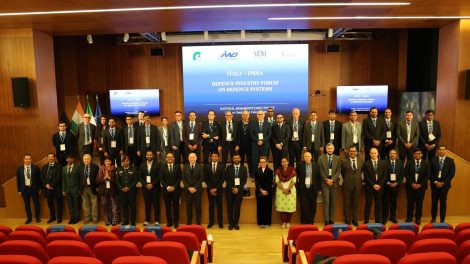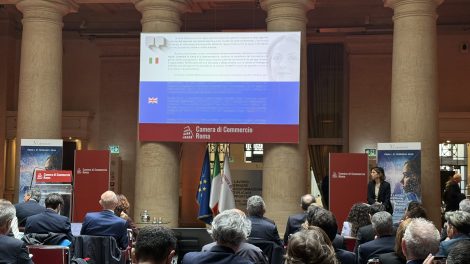Russia is “unlikely” to use nuclear weapons. That’s the assessment of the Italian Intelligence Department, as stated in its new Security Intelligence Policy Report, relating to the year 2022. Although the department keeps its focus on the escalation risks, in relation to the war’s continuation, it downgraded the nuclear threat at the time of publication.
- “The return to nuclear weapons blackmail [is] caused by Russia’s inability to assert its military primacy and the weakening of its conventional military apparatus.” That, in turn, is a consequence of the Russian-Ukrainian conflict, which is generating a new security architecture in Europe.
That should reassure those who fear military escalation and the nuclear threat and reason that the West should stop sending military aid to Ukraine to avoid fanning the flames of war. For instance, the Five Star Movement’s Giuseppe Conte, who took part in demonstrations over the weekend in support of a “peaceful solution” (and where Ukrainian flags weren’t usually welcome).
- Just days after Prime Minister Giorgia Meloni visited Kyiv to assure Rome’s support to its resistance against the invasion, Mr Conte accused her of “pursuing a strategy that only leads to military escalation.
- The road travelled so far is leading us to increasingly sophisticated weapons and an increasingly uncontrollable conflict,” he added, calling for PM Meloni to “work for a peace negotiation [as] it’s the only way out” – and noting that China’s peace plan “certainly [has] some positive elements.”
The Balkan issue. Other effects of the war, reads the Intelligence’s report, include “the transformation of some countries into critical fault lines between the West and Russia, in particular Moldova, Georgia and parts of the Western Balkans.” Moscow perceives the latter region “as a weak point in the European security architecture and vulnerable to Russian interference” and works to destabilise “with the aim of deteriorating the perception of the EU and NATO and slowing the prospects of Euro-Atlantic integration, [while] simultaneously fuelling inter-ethnic tensions (e.g. in Kosovo) and supporting the destabilising policies of some local leaders, such as that of Republika Srpska (BiH).”
- Nevertheless, EU funding and support efforts are paying off: “despite the Kremlin’s influence, all Balkan countries voted in support of the UN General Assembly resolutions against Russian action in Ukraine and aligned themselves, with the exception of Serbia, with international sanctions against Moscow.”
- Italy, on its part, “contributes to maintaining stability in the area both through the European mission European Union Rule of Law Mission (EULEX), which supports institutions in Kosovo and through the NATO mission KFOR, which has been under Italian command since October 10.”
- “On November 22, members of the Italian government travelled to Kosovo and Serbia to try to ease tensions and accelerate the path to European Union membership.”
A crumbling empire. Furthermore, the report highlighted “the marginalisation of the Russian sphere of economic-security integration,” as countries who support Russia logistically – like Belarus – must lean on it to cope with Western sanctions, whereas countries like Armenia, Kazakhstan, Kyrgyzstan and Tajikistan will see dwindling remittances from Russia and increasingly attempt “to carve out spaces of autonomy from Moscow;”
- and “the continuation of Russia’s activities of interference and influence. Moscow will not stop interfering in the political dynamics and internal decision-making processes in NATO countries, resorting even more than in the past to coercive and manipulative methods such as cyberattacks, disinformation, blackmail and the use of levers such as migration and energy, the latter of which is destined to lose relevance with Western efforts to find alternatives to energy dependence on Russia.”





